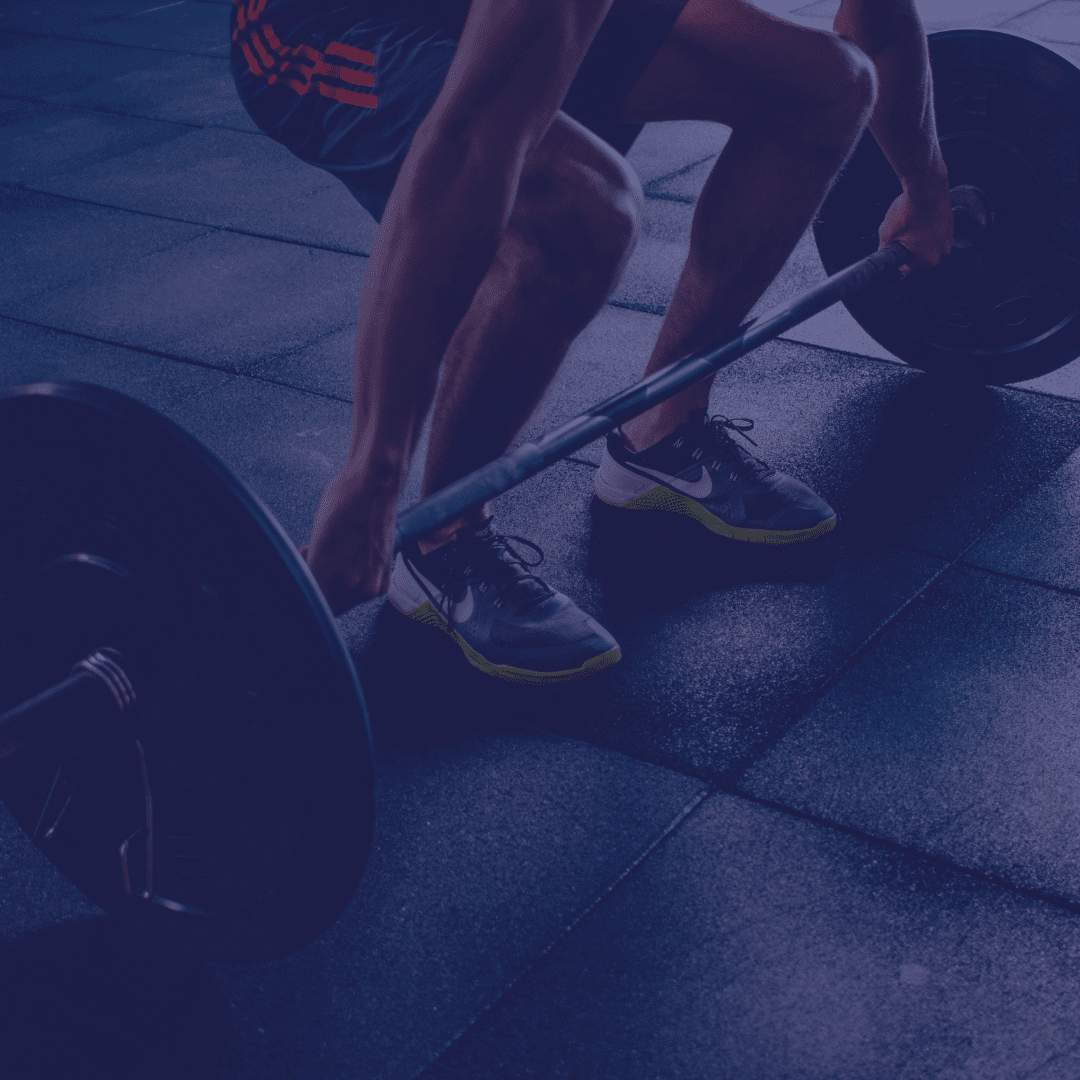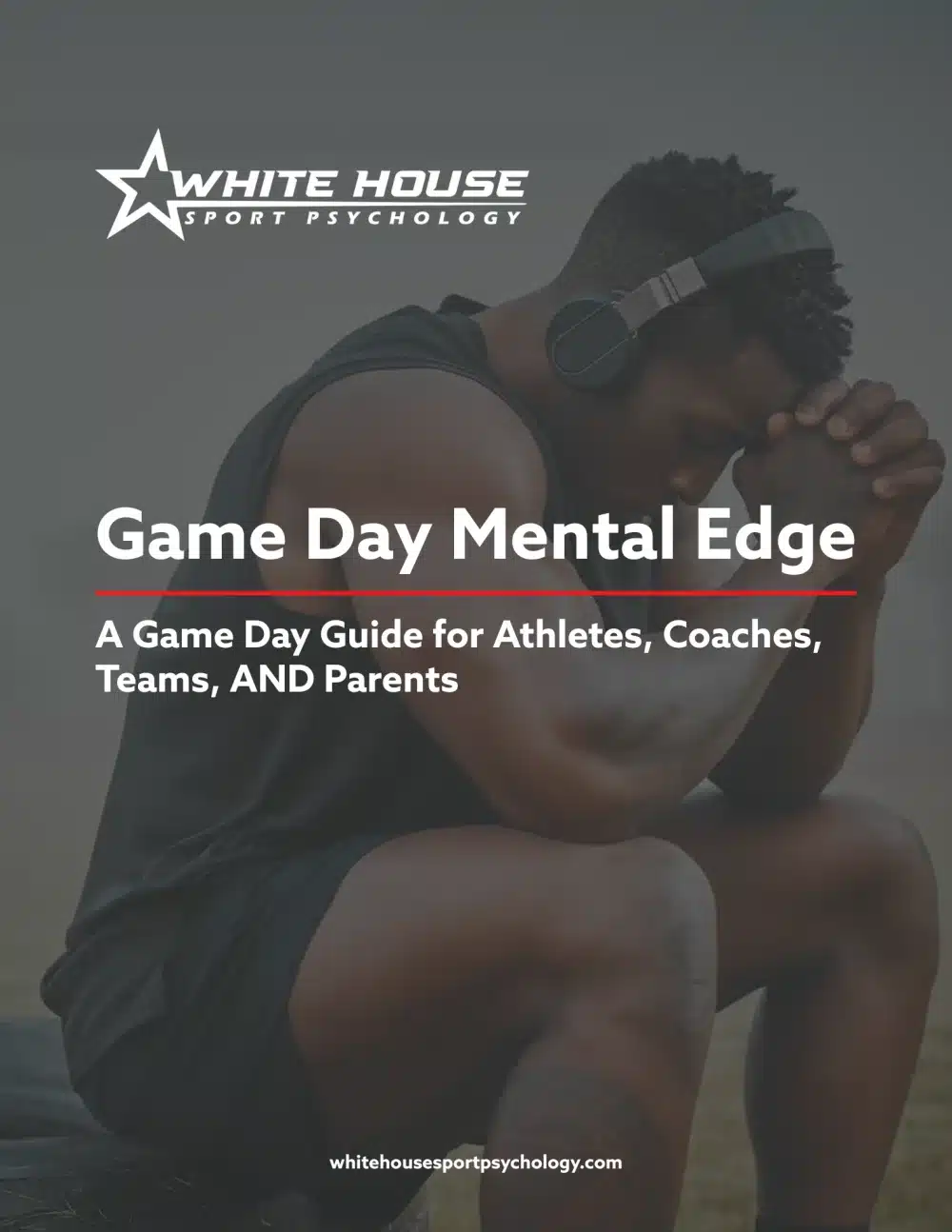At White House Sport Psychology, we’re all about helping athletes feel their best and perform at their peak. With the NCAA’s new mental health requirements expanding to include all member institutions, college athletic departments have a unique opportunity to set a firm foundation for supporting their athletes while complying with the updated mental health best practices.
Below, we’re diving into a half dozen approaches athletic departments should consider to help ensure they meet these requirements. From integrating sport psychology techniques into daily training to preparing for the future, we’re here to help you create a more supportive and effective mental health and performance program for your athletes.
#1: Develop a Comprehensive Mental Health Strategy
Creating a comprehensive mental health strategy isn’t just about putting a plan on paper—it’s about laying a solid foundation that supports your athletes from all angles. Start by drafting a detailed plan that outlines clear stakeholders, objectives, policies, goals, and actionable steps for addressing student-athlete mental health and performance.
This plan should cover everything from mental health emergency action plans and managing medication needs, to team training sessions, individual referral methods, communication standards, and other day-to-day practices centered on supporting student-athletes.
But don’t go it alone! Involve everyone who plays a role in your athletic department. Gather input from mental health professionals, team physicians, athletic trainers, as well as coaches and athletes at your institution.
White House Sport Psychology is another source of input. We offer a free consultation for athletic departments working to address the NCAA’s mental health mandate.
By collaborating with key stakeholders and professionals trained in sport psychology, you can ensure your strategy is well-rounded and tailored to the needs of everyone involved.
#2: Prepare to Build a Fully-Staffed Sport Psychology Team
Most mental health organizations recommend a provider-to-student ratio of 1 provider for every 150 students on campus. However, these recommendations don’t account for the significant increase in demand over the past decade.
More importantly, they don’t account for the fact that athletes who have access to a dedicated sport psychology resource will utilize that resource three times more than a traditional student who uses a traditional campus counseling center.
Many athletic departments are recognizing the need to hire (or contract) with a sport psychology professional who is not only licensed but also trained in the nuances of sports performance and student-athlete life. What often occurs next is a quick realization that hiring (or contracting) with only one professional is not enough.
Most professionals hired into these newly developed roles quickly become overwhelmed with demand for their services. One person can only do so much, and maintaining quality service and care is critical as the number of clients seen each week increases.
With these ideas in mind, athletic departments must address the immediate and long-term future of student-athlete mental health. Start by hiring (or contracting) a licensed mental health provider (i.e. sport psychologist) who also holds the Certified Mental Performance Consultant (CMPC) credential.
This ensures they have the background knowledge and expertise to not only support your athletes now, but also build out and lead the sport psychology department of your future.
#3: Offer Flexible, Accessible, and Appropriate Sport Psychology Services
When it comes to sport psychology and mental health support, flexibility is key. With athletes juggling busy schedules, offering in-person and virtual counseling options at times when they are available is a game-changer.
Virtual sessions can fit into tight schedules and provide a convenient way for athletes to get help without missing practice or class. Meanwhile, in-person sessions can offer that personal touch and strengthen their connection and trust with their provider—a key part of boosting well-being.
Another important element when supporting student-athletes is ensuring that the services provided are specific to the context of athletics. Doing so requires providers who accurately understand and appreciate the demands of student-athlete life.
It also means providers must be able to assist athletes with the mental side of athletic performance, which requires education and training above and beyond the training received in traditional mental health programs.
At White House Sport Psychology, we can come to your campus to provide tailored, athlete-specific support for your athletes. Our team is ready to work directly with your program, offering virtual and on-site counseling and sport psychology training to meet your athletes where they are and help them move toward the goals they have.
#4: Foster a Culture of Openness and Support
Creating a supportive environment starts with promoting mental health awareness. Regular workshops can be a great way to educate athletes and staff about the importance of mental health, reduce stigma, and provide practical tools for managing stress and anxiety.
Encouraging open discussions about mental health is also crucial. Make it a part of team meetings and daily conversations. When athletes and staff feel comfortable talking about their mental well-being, it helps normalize these conversations and breaks down barriers to seeking help.
This is especially true when coaches and department staff, people many athletes look to for examples, share their own stories and experiences with sport psychology and mental health.
Another effective way to build a supportive community is by implementing peer support programs or mentorship. Pairing athletes with mentors or creating peer support groups promotes shared experiences and mutual encouragement. It’s a great way to ensure everyone feels supported and understood, making it easier for athletes to reach out and help each other.
#5: Integrate Mental Health and Performance Into Daily Training
Don’t wait for a mental health crisis to address mental health and well-being. Incorporate mental health practices right into your daily training routine. Start with simple techniques like mindfulness and stress management exercises. A few minutes of mindfulness each day can help athletes stay calm and focused, while stress management strategies can ease pressure.
Mental skills training is critical, too. Techniques like mental imagery help athletes boost focus, enhance performance, and build trust in their abilities. This balanced approach helps athletes perform better and feel their best both in and out of sport.
#6: Engage in Regular Mental Health Training for Coaches and Staff
Regular training for coaches and staff about the role of mental health and sport psychology in athletics is a key part of maintaining a culture of support. Training department staff to recognize and address mental health issues ensures they’re equipped to spot signs of distress and respond appropriately.
When planning these events, include strategies for creating a supportive environment and managing stress so everyone knows how to foster a positive atmosphere. Share best practices for maintaining mental health within the program, and keep everyone updated on the latest techniques and resources.
When mental health trainings and interventions target the staff in addition to the athletes, everyone benefits from a well-supported, informed environment.
Continuously Evaluate and Adjust Mental Health Programs
It’s essential to review your mental health programs regularly to ensure they are really making a difference. Set up systems and specific methods of measuring progress to evaluate how well your initiatives are working.
Beyond any metrics you may be tracking, collect feedback from athletes and staff to gain contextual information and details that numbers and reports can’t give you. Their insights can reveal areas that need tweaking or new strategies that could be beneficial. By actively seeking and using this feedback, you can ensure your programs are constantly evolving to better meet the needs of your teams.
Want help keeping your mental health programs on track? White House Sport Psychology is here to support you. We can assess your current strategies, help you gather feedback, and make adjustments as needed. Let’s team up to ensure your mental health initiatives not only meet the mark, but also move the needle.
Remember: while adhering to these guidelines is important, fulfilling the NCAA mental health regulations is about more than compliance. That’s just the beginning. With more and more student-athletes using sport psychology resources to master their mind, and their game, you can leverage this opportunity to set your program apart from those that athletes are leaving due to poor cultures and inadequate support for their mental health and performance needs.

